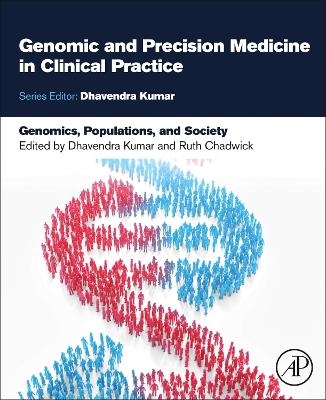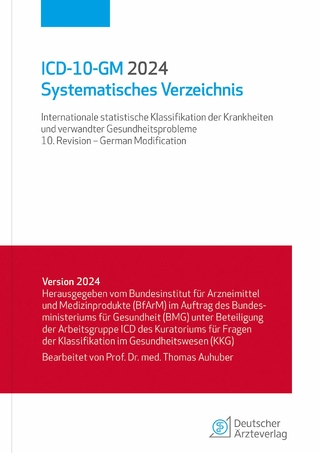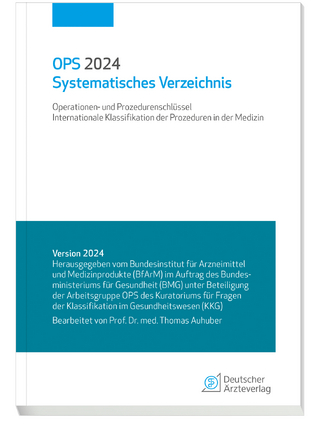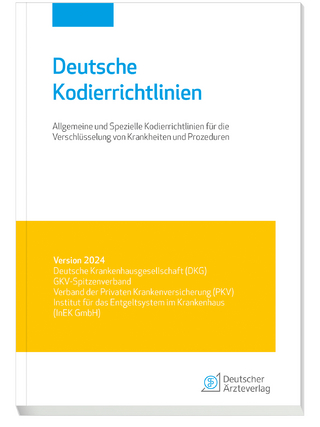
Genomics, Populations, and Society
Academic Press Inc (Verlag)
978-0-323-91799-5 (ISBN)
- Noch nicht erschienen (ca. Dezember 2024)
- Versandkostenfrei innerhalb Deutschlands
- Auch auf Rechnung
- Verfügbarkeit in der Filiale vor Ort prüfen
- Artikel merken
Ruth Chadwick is Distinguished Research Professor and Director of the ESRC (Economic and Social Sciences Research Council) Centre for Economic and Social Aspects of Genomics (Cesagen), at Cardiff University, UK and Link Chair between Cardiff Law School and the School of English, Communication and Philosophy (ENCAP). Professor Chadwick has coordinated a number of projects funded by the European Commission, including the EUROSCREEN projects and co-edits the journal Bioethics and the online journal Genomics, Society and Policy. She is Chair of the Human Genome Organisation Committee on Ethics, Law and Society, and has served as a member of several policy-making and advisory bodies, including the Panel of Eminent Ethical Experts of the Food and Agriculture Organisation of the United Nations (FAO), and the UK Advisory Committee on Novel Foods and Processes (ACNFP). She was editor-in-chief of the first edition of the award winning Encyclopedia of Applied Ethics. She is an Academician of the Academy of Social Sciences and a Fellow of the Hastings Center, New York; of the Royal Society of Arts; and of the Royal Society of Medicine. In 2005 she was the winner of the World Technology Network Award for Ethics for her work on the relationship between scientific developments and ethical frameworks. She graduated with first class Honours Literae Humaniores (Philosophy and Greek and Latin Literature) from the University of Oxford, and then went on to take the B.Phil. in Philosophy. She was awarded her D.Phil. on The Ethics of Eugenics and Genetic Engineering, supervised by Jonathan Glover. She completed an LL.B. (externally) at the University of London. She held positions at the University of Liverpool, St. Martins College, Lancaster, and University of Wales, Cardiff, before taking up her post as Professor of Moral Philosophy at the University of Central Lancashire. In June 1995 she became Head of the Centre for Professional Ethics at the University, a position she still holds. She has coordinated a number of multinational and multidisciplinary research projects funded by the European Union: Ethical Implications of Human Genome Analysis for Clinical Practice in Medical Genetics, with Special Reference to Genetic Counselling (1992); EUROSCREEN: Genetic Screening--Ethical and Philosophical Perspectives (1994–1996); BIOCULT: Cultural and Social Objections to Biotechnology, with Special Reference to the View of Young People (1995); EUROSCREEN 2: Genetic Screening--Towards Community Policy on Insurance, Commercialisation and Public Awareness (1996–1999). Her publications include the four volume edited collection, Kant: Critical Assessments (1992); Ethics, Reproduction and Genetic Control (Revised Edition, 1992);and a large number of papers in learned journals. She is joint series editor of the Routledge series on Professional Ethics. Professor Chadwick is secretary of the International Association of Bioethics and a member of the HUGO Ethics committee, the National Committee for Philosophy and the British Medical Association Steering Group on Human Genetics. Professor Kumar has considerable previous experience in writing and editing books and journals related to genetics and genomics. His books include Genomics and Clinical Medicine and Genomics and Health in the Developing World. He founded and leads the new open access journal Applied and Translational Genomics, published by Elsevier. He has published 40 articles in the journals literature. Professor Dhavendra Kumar is a Visiting Professor, Genomic Policy Unit, Faculty of Life Sciences and Education, The University of South Wales and Consultant in Clinical Genetics at the University Hospital of Wales, Institute of Medical Genetics, Cardiff University, Cardiff, United Kingdom. He is one of the Consultants for the All Wales Medical Genetics Service and the lead Clinician for Clinical Cardiovascular Genetics. After qualifying in Medicine from the King George’s Medical College, University of Lucknow, India, he completed postgraduate training in Pediatrics with an MD. Since 1980 he has pursued a career in Medical Genetics in the UK. In 1990 he became a Diplomate of the American Board of Medical Genetics. He is a Fellow of the American College of Medical Genetics (FACMG) and as well as Royal Colleges of Physicians (FRCP-London and FRCP-Ireland) and Pediatrics and Child Health (FRCPCH-UK). In 2015, he was conferred with the higher degree of DSc by his Alma Mater, King George’s Medical University, Lucknow (UP, India) based on his life-time contributions and achievements to genetic and genomic applications in medicine and health.
Section I Scientific aspects
1. Introduction to genes, genomes and genomics
2. OMIC science and technologies
3. Population genomics
4. Genome technologies including computational genomics
5. Bio-banks- organisation and the role
Section II Healthcare applications
6. Genomic and Precision Medicine
7. Genomic Healthcare & Genomic health screening
8. Genomics and Digital health
9. Genomics led health economics- Consumers and State funded
10. Therapeutic genomics including gene/ genome editing
11. Genomics and Infectious diseases: Lessons learnt from Covid-19
Section III Socio-Cultural Aspects
12. Community engagement- population understanding, attitudes
13. Consanguinity – genetics and genomics dimensions
14. Genomic dimensions of Faith, Spiritual beliefs and Socio-cultural customs
15. Genomic literacy and continued learning
16. Psychosocial aspects of biobanking
Section IV Ethical Aspects
17. Population health ethics & genomics
18. Accessibility, Equity & Harmonization of genomic gains
19. Research governance and ethics- the European Model
20. Ethical and economic aspects of ecogenomics
Section V Global health genomics
21. Global genomic initiatives
22. The H3 Africa project and outcomes
23. Genome databases
24. Commercialization of genomic outcomes
25. Law, statutory regulations and safeguards
| Erscheint lt. Verlag | 1.12.2024 |
|---|---|
| Reihe/Serie | Genomic and Precision Medicine in Clinical Practice |
| Verlagsort | Oxford |
| Sprache | englisch |
| Maße | 191 x 235 mm |
| Themenwelt | Informatik ► Weitere Themen ► Bioinformatik |
| Naturwissenschaften ► Biologie ► Genetik / Molekularbiologie | |
| ISBN-10 | 0-323-91799-2 / 0323917992 |
| ISBN-13 | 978-0-323-91799-5 / 9780323917995 |
| Zustand | Neuware |
| Haben Sie eine Frage zum Produkt? |
aus dem Bereich


